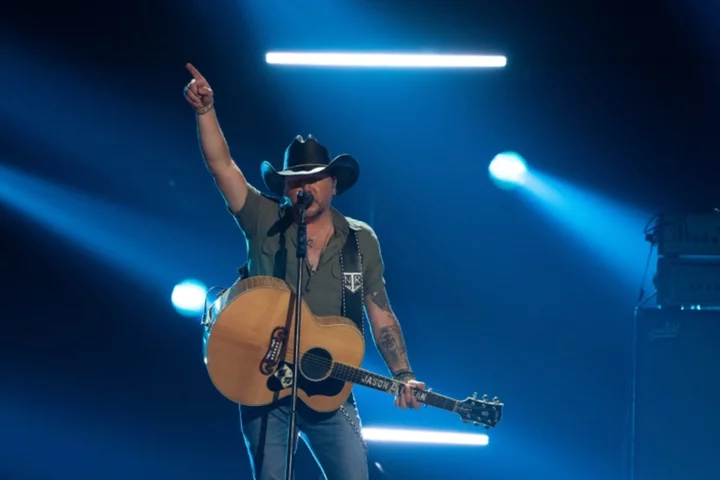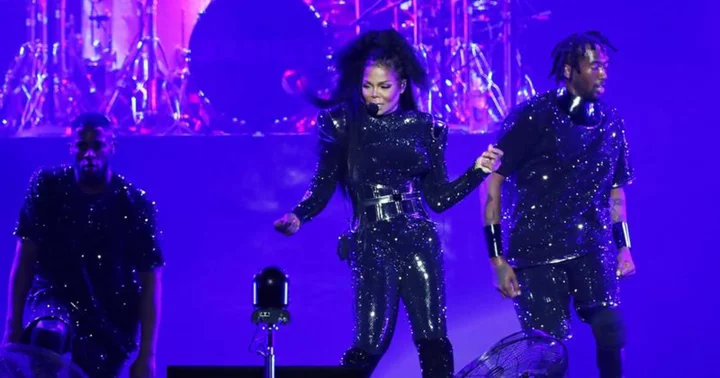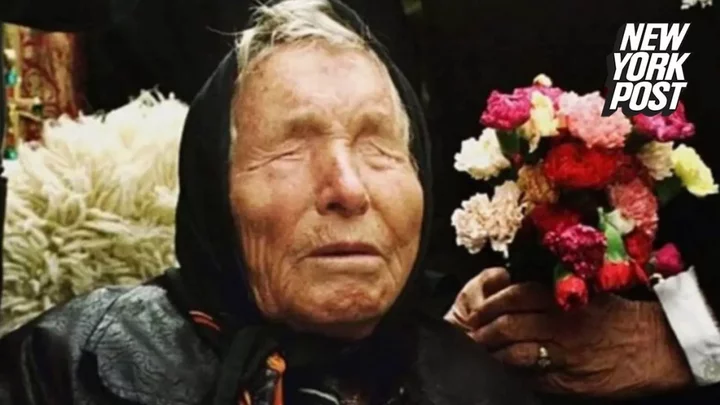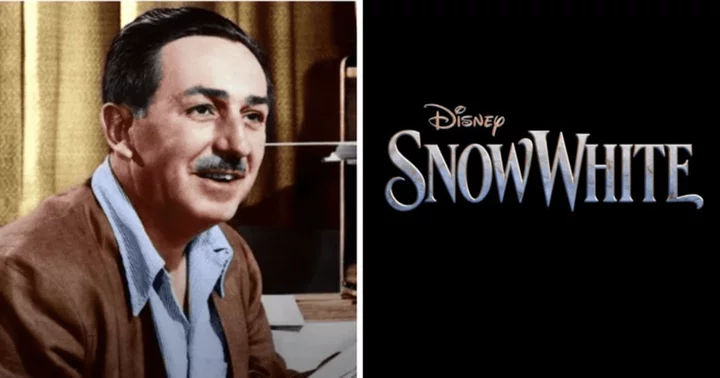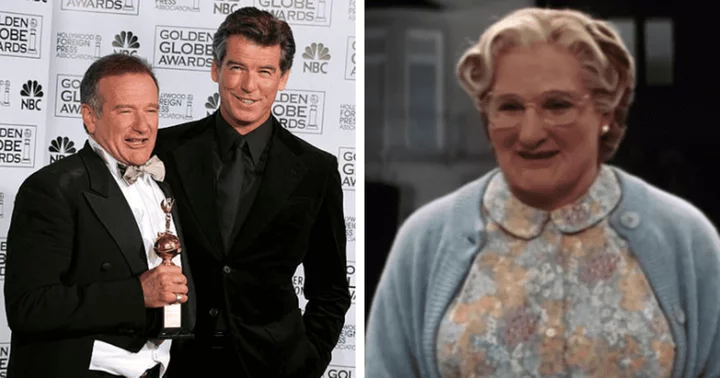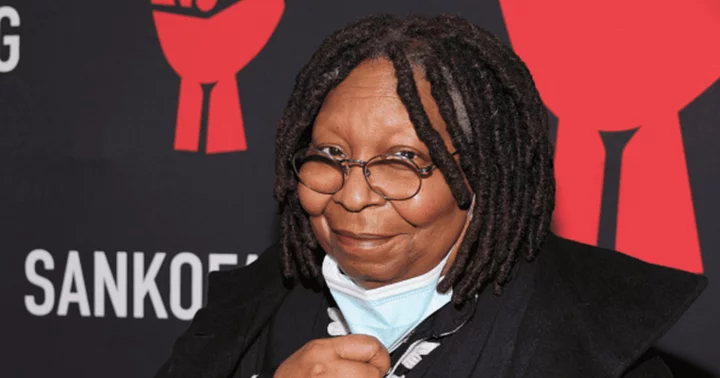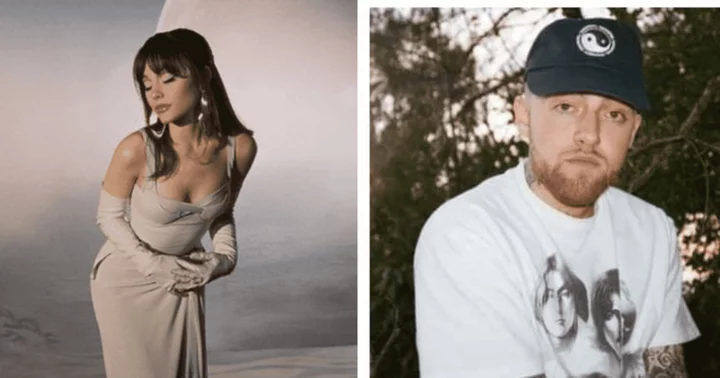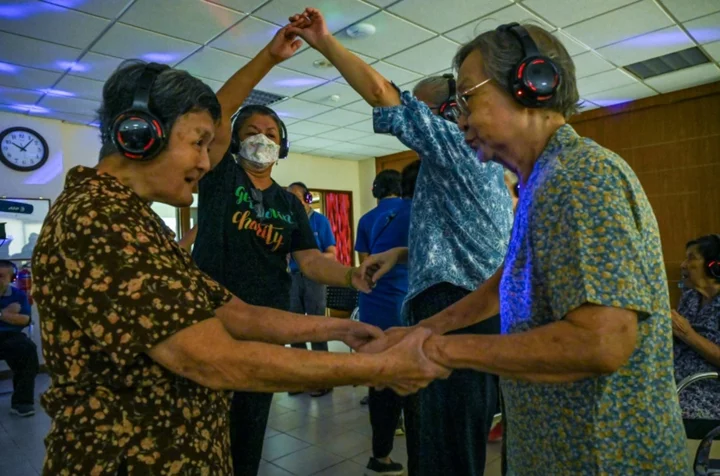When Jason Aldean released the video for his song "Try That in a Small Town" in mid-July, which critics say glorified violence and fueled racism, the singer catapulted country music into the latest debate illustrating America's socio-political divides.
The song's lyrics open with descriptions of various violent acts -- "Sucker punch somebody on a sidewalk," "Cuss out a cop, spit in his face," and "Stomp on the flag and light it up," Aldean sings.
The country star then warns: "Think you're tough? Well try that in a small town," and proceeds to remind listeners that he's "got a gun that my granddad gave me."
When it was released in late May, the song made few waves. But as the video emerged two months later, a tsunami of discord ensued.
The video shows Aldean, guitar in hand, standing before a courthouse in a Tennessee town, site of the lynching of a Black teen by a mob in 1927, and a municipality in which race riots occurred in 1946.
The on-scene footage is interspersed with scenes of violent street protests and other culture-war hot-button imagery, so much so that the video was pulled from rotation on Country Music Television -- evidence of the tensions simmering within the country music world itself.
- Who makes the rules? -
For Aldean, his song refers to "the feeling of community," where "we take care of our own."
Shannon Watts, an activist against US gun violence, replied that the lyrics harked back to darker days.
"Translation: Jason Aldean simply wants to return to a time in America when 'good old boys' could shoot or beat the shit out of people who they didn't think belonged in their town," she wrote on Twitter.
In an editorial for CNN, historian Nicole Hemmer argued that the lyrics represent a "celebration of vigilantism," and an "assertion of who is allowed to make and enforce the rules."
Aldean defends himself against any racist reference or apology for violence, and was on stage at a music festival in Las Vegas in 2017 when a lone gunmen in a high-rise fired down on fans, killing 60 people and wounding more than 400 others, one of the worst acts of gun violence in modern US history.
He considers that the interpretation of his song's lyrics "goes too far."
The controversy over Aldean and his song is part of the "culture wars" in the United States, in which social issues -- from the rights of LGBTQ people to the content of school textbooks -- have become heated topics.
And country music, which the public generally views as leaning conservative, is far from immune to the debates.
As early as the 1920s, certain themes were making their way into country song lyrics, notably "an evangelical Christian perspective on life," Jocelyn Neal, a professor of music at the University of North Carolina, told AFP.
- 'Not monolithic thing' -
The industry in the 1950s brought country music "in line with kind of middle class, white, moderate to conservative value systems" and in favor of military service for "marketing purposes," Neal said.
But country music "is not a monolithic thing," Neal said, pointing to an "increased diversity" of artists in recent years, such as African American singer Rissi Palmer.
Aldean, who says he has "never... hidden" his conservative positions, enjoyed the support of several right-wing figures in the early days of the controversy, including Donald Trump.
The former Republican president and candidate for the Republican presidential nomination in 2024 described the singer on his Truth Social network as a "fantastic guy," with "a great new song," and called on people to "support Jason all the way."
The call seems to have been heard: "Try That in a Small Town" spent several days at the top of the iTunes song chart in the United States, and climbed to number two on Billboard's Hot 100 chart.
This success echoes that of Morgan Wallen, a country singer from Tennessee who was caught on video in 2021 uttering the racist "N-word" that is taboo in the United States -- only to see his record sales soar afterward.
rle/gl/mlm/tjj/bfm

